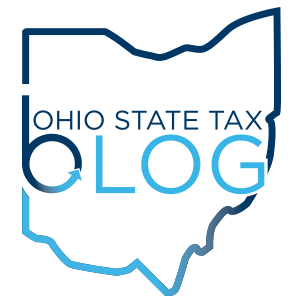Are you sure you’re an Ohio non-resident? Bright-line residency effectively muted: Ohio Supreme Court rules taxpayers must satisfy the burdensome common-law domicile test for Ohio income tax even when residency affidavit filed.
The Ohio Supreme Court delivered a significant blow to individuals claiming nonresident status for Ohio personal income tax under the bright-line residency statute. Cunningham v. Testa, 2015-Ohio-2744. The Ohio statute provides that an individual is irrebuttably presumed to be a nonresident if the individual satisfies three requirements: (1) maintains an abode outside Ohio for the entire year; (2) satisfies the contact period test (recently increased to less than 212 Ohio contact periods); and (3) files an affidavit verifying domicile is outside Ohio. R.C. 5747.24(B). Bright-line residency, originally enacted in 1993, is intended to streamline residency determinations which under the common-law domicile test are extremely fact intensive.
Under the previous interpretations of the bright-line residency statute, an individual filing the required affidavit was considered a nonresident provided the two factual statements in the affidavit were true – the taxpayer maintained a non-Ohio abode and had less than the stated Ohio contact periods (182 prior to 2015). It was believed all other facts were irrelevant, even if the taxpayer would have been considered an Ohio resident under the common-law domicile test. This is no longer the case. The Supreme Court held that the presumption is not binding when the Tax Commissioner “has a substantial basis for rejecting the claim of non-Ohio domicile” that is supported by “specific information that warranted the finding.”
In Cunningham, the taxpayer signed a homestead exemption application for his Cincinnati residence under penalties of perjury attesting that he was domiciled in Ohio. This contradictory statement meant his residency affidavit contained a false statement – that he was not domiciled in Ohio. Due to the false statement, the non-residency presumption was no longer irrebuttable and actually required the taxpayer to meet the common-law residency test. The Court then considered a bevy of additional facts in concluding the common-law test was not met – that the taxpayer voted in Ohio; held an Ohio driver’s license; was born, raised, and educated in Ohio; was married and raised a family in Ohio; and generally had mailed delivered to Ohio.
Quoting the Board of Tax Appeals’ decision, the dissent points out this decision “essentially renders the ‘bright-line’ non-residency status… moot, as the commissioner could always challenge the veracity of the statement that the taxpayer was not domiciled in Ohio.” The question now becomes what constitutes a “substantial basis” for disputing the affidavit’s non-residency statement and how specific must the Tax commissioner’s information be to support this basis. Does it require a contradictory statement sworn to under penalties of perjury, as in Cunningham, or is any fact supporting non-residency, such as registering a vehicle with Ohio, sufficient? The only certain protections taxpayers have are those facts which the Tax Commissioner cannot consider under O.A.C. § 5703-7-16(A).
This decision is contrary to Governor Kasich’s policy to reduce Ohio individual income tax obligations through reduced rates, minimizing tax on small-business owners, and increasing the permissible presence under the bright-line residency statute. It will have significant implications for taxpayers claiming non-Ohio residency, but having multiple residences, such as retirees with significant investment / intangible income that split time between Ohio and another state. We will post a follow-up article with planning tips that individuals should consider to increase the likelihood their non-resident status will be recognized under this new interpretation of the bright-line statute based upon our substantial experience supporting non-resident status under the common-law domicile test. If you have any questions, contact Steve Dimengo, Rich Fry, or Casey Davis.
